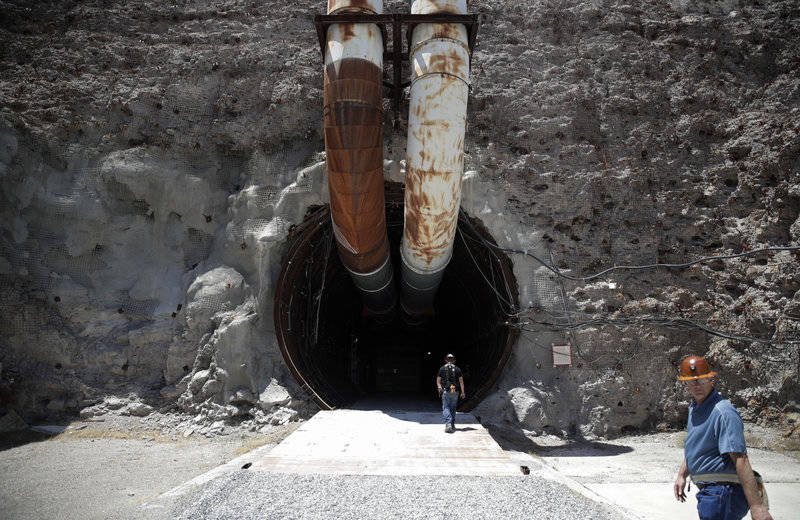Private Companies Propose Their Own Storage Plans
As the waste piles up, private companies are stepping in with their own solutions for the nation’s radioactive spent fuel. One is proposing a temporary storage site in New Mexico, and another is seeking a license for a site in Texas.
But most experts agree that what’s needed is a permanent site, like Yucca Mountain, that doesn’t require humans to manage it.
“Institutions go away,” says Edwin Lyman, acting director of the Nuclear Safety Project at the Union of Concerned Scientists. “There’s no guarantee the owner will still be around for the duration of time when that waste remains dangerous, which is tens or hundreds of thousands of years.”
A California company says it has a viable plan for permanent storage. Deep Isolation wants to store spent fuel in holes drilled at least 1,000 feet underground in stable rock formations. The company says the waste would be separate from groundwater and in a place where it can’t hurt people.
“I like to imagine having a playground at the top of the Deep Isolation bore hole where my kids and I can go play,” says CEO Elizabeth Muller.
Last November, Muller’s company conducted a test north of Austin, Texas. Crews lowered an 80-pound canister into a drilled hole. It was a simulation, so no radioactive substances were involved. The goal was to determine whether they could also retrieve the canister.
The test was successful, and that’s important. Regulators require retrieval, because new technology could develop to better deal with the spent fuel. And the public is less likely to accept disposal programs that can’t be reversed, according to the International Atomic Energy Agency.
Proving the waste can be retrieved may be the easy part. The bigger challenge is federal law, which doesn’t allow private companies to permanently store nuclear waste from power plants.
Current law also says all the waste should end up at Yucca Mountain in Nevada. By contrast, Deep Isolation’s technology would store waste at sites around the country, likely near existing nuclear power plants.
“I just don’t see how there would be political support from every other state, other than Nevada, for changing the law, so that spent nuclear fuel could stay in your state forever,” says Lyman.
Despite the law, all that waste in dozens of states is staying put for now.
Copyright 2019 NPR. To see more, visit https://www.npr.org.
9(MDAxOTAwOTE4MDEyMTkxMDAzNjczZDljZA004))


9(MDAxOTAwOTE4MDEyMTkxMDAzNjczZDljZA004))